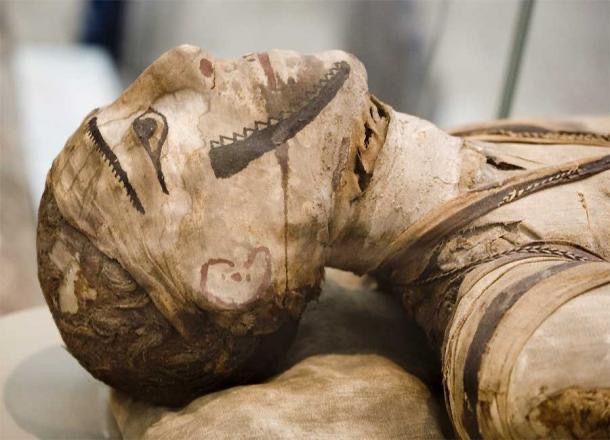The Origins of Voodoo, a Misunderstood Religion
- skloucherepierre
- Jan 11, 2021
- 4 min read

In 64 AD, an extraordinary fire broke out in Rome for six days and crushed a significant part of the city. As indicated by the author Tacitus, "Nero attached the blame and exacted the most stunning torments on a class despised for their horrifying presences, called Christians by the general population." The "plagues" submitted by the early Christians were supposed to be barbarianism and inbreeding, in light of bits of gossip flowing in Rome around then which originated from a misconception of the Eucharist.
This scene throughout the entire existence of the early Church shows how effectively a religion, particularly a moderately cryptic one, can be misconstrued and distorted. A comparative case can maybe be found in the religion known as Voodoo (otherwise called Vodou or Voudon).
For some, the word 'Voodoo' evokes pictures of mystical dolls with pins adhered in them to exact torment on one's foes and the revival of the dead as zombies. These pictures are the consequence of the deception of Voodoo by mainstream society, and don't precisely speak to Voodoo as perceived by its specialists.

What are the Beliefs of Voodoo?
In 64 AD, an extraordinary fire broke out in Rome for six days and crushed a significant part of the city. As indicated by the author Tacitus, "Nero attached the blame and exacted the most stunning torments on a class despised for their horrifying presences, called Christians by the general population." The "plagues" submitted by the early Christians were supposed to be barbarianism and inbreeding, in light of bits of gossip flowing in Rome around then which originated from a misconception of the Eucharist.
This scene throughout the entire existence of the early Church shows how effectively a religion, particularly a moderately cryptic one, can be misconstrued and distorted. A comparative case can maybe be found in the religion known as Voodoo (otherwise called Vodou or Voudon).
For some, the word 'Voodoo' evokes pictures of mystical dolls with pins adhered in them to exact torment on one's foes and the revival of the dead as zombies. These pictures are the consequence of the deception of Voodoo by mainstream society, and don't precisely speak to Voodoo as perceived by its specialists.
“Voudon believers worship many spirits (called loa or Iwa), each one of whom is responsible for a specific domain or part of life. So, for example, if you are a farmer you might give praise and offerings to the spirit of agriculture; if you are suffering from unrequited love, you would praise or leave offerings for Erzulie Freda, the spirit of love, and so on. In addition to helping (or impeding) human affairs, loa can also manifest themselves by possessing the bodies of their worshipers. Followers of voudon also believe in a universal energy and a soul that can leave the body during dreams and spirit possession.”

The History of Voodoo
Despite the fact that the specific causes of Voodoo are obscure, it is for the most part concurred that this religion has its underlying foundations in West Africa. Current Benin is viewed as the origin of this religion, and the name 'Voodoo' itself signifies 'soul' in the neighborhood Fon language.
Zombie Powder, Bird Saliva, and Rotten Shark: Would You Try These Ancient Foods?
Annie Palmer, the White Witch of Rose Hall
Spells, Charms, Erotic Dolls: Love Magic in the Ancient Mediterranean
It has been proposed that Voodoo in West Africa developed from the old customs of progenitor love and animism. The types of Voodoo rehearsed today, nonetheless, are the aftereffects of quite possibly the most heartless scenes in current history – the African slave exchange that occurred between the sixteenth and nineteenth hundreds of years.
At the point when African slaves were brought to the Americas to chip away at estates, they carried Voodoo with them. Their white bosses, notwithstanding, had different plans with respect to the strict acts of their slaves. A 1685 law, for example, precluded the act of African religions, and required all bosses to Christianize their slaves inside eight days of their appearance in Haiti.
In spite of the fact that the slaves acknowledged Roman Catholicism, they didn't surrender their customary convictions by the same token. All things considered, the old and the new were syncretized, creating some one of a kind outcomes. Large numbers of the Catholic holy people were related to conventional Voodoo lwas (spirits) or held a two sided connotation for the experts of Voodoo. For example, in Haitian Voodoo , St. Peter is perceived as Papa Legba, the guardian of the soul world, while St. Patrick is related with Dumballah, the snake lwa.
Albeit African slaves were brought to Haiti and New Orleans about a similar time, for example the 1720s, the improvement of Voodoo rehearses in every territory is very extraordinary. In Haiti, Voodoo turned into a power that invigorated and supported the slaves through their difficulties and languishing. Somewhere in the range of 1791 and 1804, a progression of slave revolts motivated by Voodoo practice finished in the ousting of the French from Haiti.
The Spread of Voodoo Practices
The homesteaders who endure fled to New Orleans, some joined by their French-talking slaves who were Voodoo specialists. It is from these fresh debuts that Voodoo started to fill in New Orleans . Despite the fact that Voodoo was rehearsed in that piece of the United States preceding 1791, it was not as solid a power as in Haiti, and it was mercilessly smothered each time it arose. It was uniquely in the nineteenth century that Voodoo rehearses in New Orleans were systematized by the confounding Marie Laveau.
Voodoo has since spread to other African countries, the Caribbean, just as North and South America. In Benin and Haiti, Voodoo is currently formally perceived as a religion. In any case, Voodoo is as yet a somewhat misconstrued religion because of its erroneous depiction by the media.
Rather than partner this religion with zombies and Voodoo dolls, we ought to maybe set aside the effort to more readily get Voodoo, and view it as a lifestyle or a bunch of core values held by its adherents.

Youtube Link : https://www.youtube.com/watch?v=YB-vAOa_8dQ
.jpg)









We love what you do Mr Carson and we have some of your books, keep up your quest for answers as we all just want the truth to the History of our Planet and yes we can handle the truth, looking forward to reading The Origins of Voodoo. Sincerely Dirk Anderson